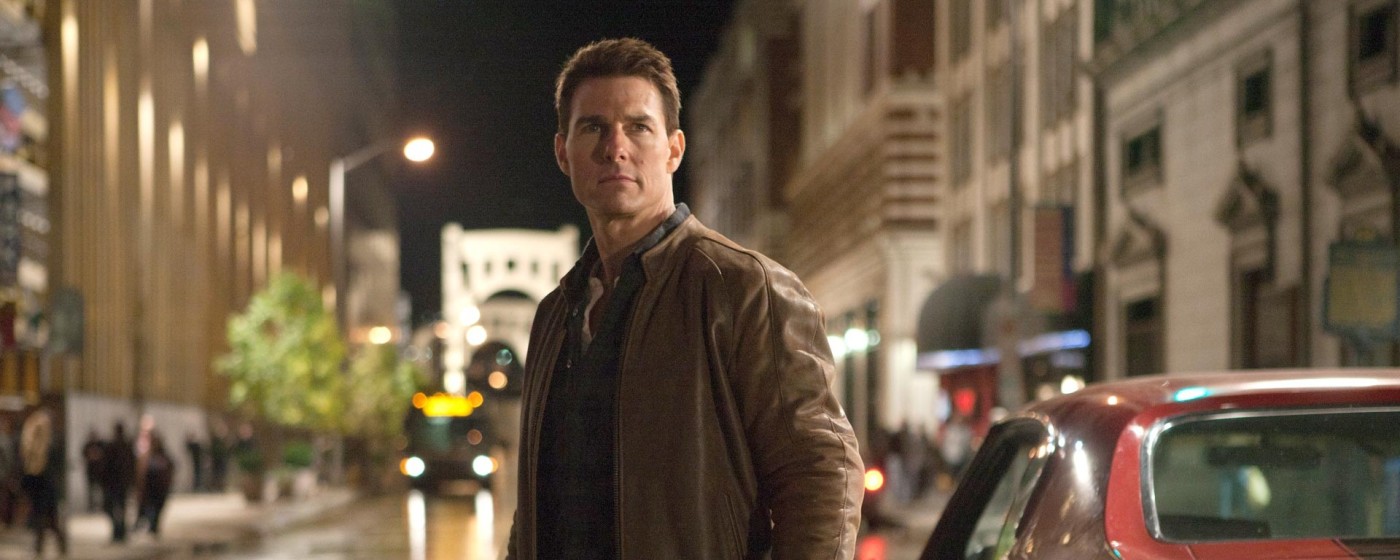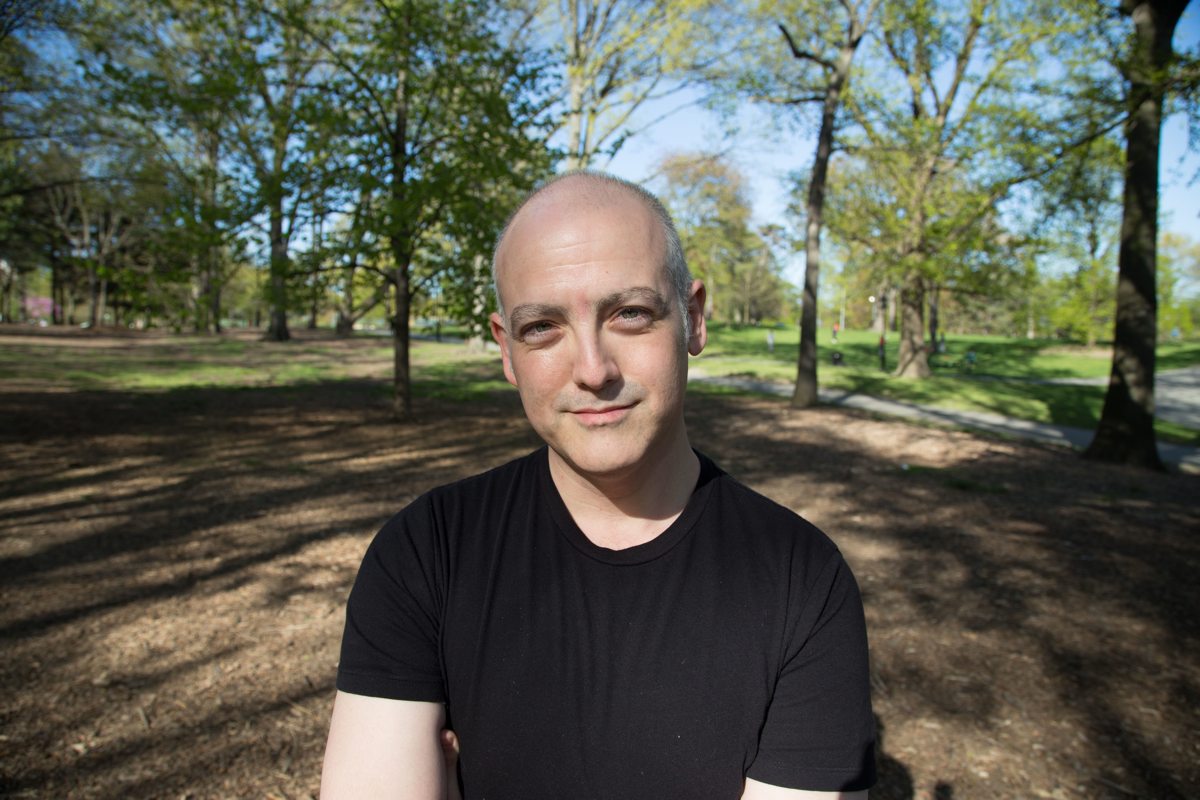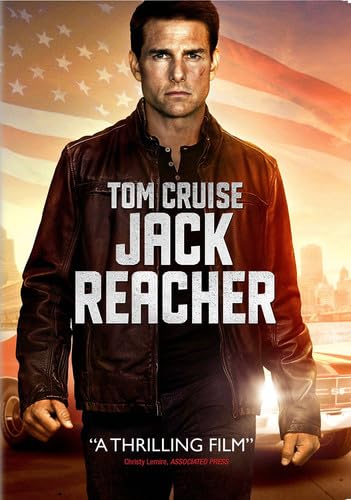It’s well-established that Tom Cruise is too short to play the Jack Reacher of Lee Child’s novels, a broad-shouldered giant of an ex-military policeman described by the author in terms usually reserved for horror movie beasts. But between Cruise’s often steely, obsessive screen persona and his multiple-decades-long career as a leading man, he’s built up a gravitas that translates to “menace” easily, and he’s effective in “Jack Reacher,” adapted by Christopher McQuarrie (“Way of the Gun,” “The Usual Suspects“) from the novel “One Shot.” Even when he’s laughing and grinning, Cruise seems like the sort of person one wouldn’t want to cross. He can also do icy minimalism (see Michael Mann’s “Collateral” for proof), and that’s the mode McQuarrie is operating in here, so it’s an effective match of leading man and filmmaker, even though the overall impact is that of a superior proof-of-concept pilot for a TV show rather than a rich stand-alone film.
The story begins when a man drives a van into the parking garage across the Allegheny River from a stadium and murders five people with a sniper rifle. Local cops pull a fingerprint from a quarter deposited in a parking meter near the garage where the killer set up and arrest ex-Army sniper James Barr (Joseph Sikora). Detective Calvin Emerson (David Oyelowo) and District Attorney Alex Rodin (Richard Jenkins) offer Barr a choice between confessing to the crimes and going to prison for life. Barr adds a third option: writing “Get Jack Reacher” on a notepad.
Reacher, who came to Pittsburgh after watching TV news coverage of the shootings, visits Barr in the hospital, where he’s in a coma with memory loss after having been attacked by fellow inmates during incarceration. Reacher meets Barr’s defense attorney, Helen Rodin (Rosamund Pike), who happens to be the D.A.’s daughter. The case has a few peculiar details, notably the fingerprinted quarter: what sort of mass murderer pays for parking? What really happened here?
Helen and Reacher (they call him Reacher, almost never Jack) discuss the incident and embark on their own investigation. Well, not exactly: Reacher drives the movie to such a degree that it makes Cruise seem insecure as a leading man (he’s more generous in the “Mission: Impossible” movies). He does most of the talking here, trying out his own theories and picking apart Helen’s. Mostly Helen is there to (1) help Reacher do things he doesn’t have the clearance or access to do for himself, (2) be proved wrong or made to seem naive, and (3) get kidnapped and used as a hostage/leverage in the final stretch of the movie.
Reacher is a sharp and often sardonic investigator in the books and usually becomes the alpha in whatever room he’s in. But there’s something misguided in this film’s tone. It tips things so that we spend two hours watching Reacher be right about (almost) everything. Helen isn’t insulted or degraded by the movie, but she’s not respected, either, and almost every person who dares step to Reacher gets his butt handed to him in a lunchpail. That gets dull after a while. If Cruise weren’t so naturally intense and the filmmaking so assured, it would have gotten dull a lot faster.
The mystery ultimately leads us to the bad guys, but they’re introduced to the audience long before Helen and Reacher figure out how they’re involved in the mass murder and why they engineered it the first place. The chief henchman is a Reacher-like paramilitary badass played by Jai Courtney. The Big Bad is a gangster posing as a legitimate businessman who goes by the ominous one-syllable name Zec (Russian for “prisoner”) and is played by director Werner Herzog.
Zec is a cipher, more a satanic presence than a man. It makes sense that Cruise and McQuarrie would decide to fill the part with somebody who is as much of a “brand” in his own way as Cruise. Herzog has chronicled so much madness and evil as a director that it’s rubbed off on him by osmosis, even though he comes across as a cheerful eccentric when discussing his art. His work in “Jack Reacher” is one of the best pieces of director stunt casting since Martin Scorsese played the president of Geritol in “Quiz Show.” Herzog brings menace and a hint of cosmic irony to the role, making it feel like a statement rather than a gimmick. Zec is a man who has not just seen hell, but purchased real estate.
There’s another cagey old veteran in the cast: Robert Duvall, who acted with Cruise in “Days of Thunder.” He plays Marine Gunnery Sgt. Martin Cash, who helps Reacher go after the bad guys and is an artist with a rifle. The scenes between Cruise and Duvall are the most pleasurable in the film. Duvall often seems to be busting Cruise’s chops, more so than Cash busting Reacher’s. This levels out Cruise’s control-freak approach to the “hero” part. Duvall is a thousand-pound bull of an actor: Cruise seems to know he’ll get the best results by waving a cape at him, then stepping aside to let him gallop and kick.
McQuarrie deserves credit for having enough faith in the power of his filmmaking to limit himself to a handful of self-contained action scenes, none of which are big by modern Hollywood standards, and make them feel wild, messy and harrowing rather than hide inside of the software-buffed vague digital slickness that has become so common. A fight between Reacher and three men in a house, two of whom corner him in a bathtub and try to kill him with bats, feels real even when Reacher is making like 1980s Schwarzenegger and using one man’s head as a makeshift bowling ball to beat another man’s face in.
Cruise has that Harrison Ford gift for acting his way through action and reacting to things the way we might, even if we had the hero’s experience and training. The movie is never funner or more exciting than when Reacher is facing off against men whose machismo has poisoned the part of their brain that produces common sense and who fail to read Reacher as somebody who makes promises, not threats. Sometimes things will get intense even by Reacher’s standards and he’ll throw off a reaction that says, “I can’t believe I’m in a life-or-death situation for the fourth time this week” right before he rallies and neutralizes the people who are causing him problems.
The climax should serve as a model for anybody hoping to stage comprehensible action in a vast, dimly lit space (the cinematographer is Caleb Deschanel, who shot “The Black Stallion,” “The Right Stuff” and other classics). Every moment is so cleanly conveyed that you could write out a police report and not forget anything important. “Reacher” is a solid mystery-action picture, made memorable by the caliber of craft that its cast and crew brings to the table.




















